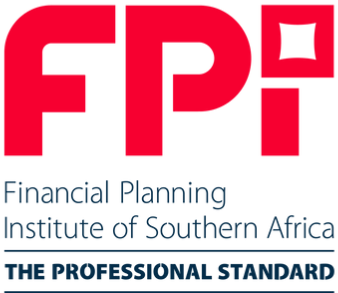Thank you for granting this interview and reflecting on another successful year for the FPI under your leadership. We have many milestones and achievements to celebrate, so let’s begin. Please provide an overview of the FPI since the 2023 convention.
The progress since the 2023 FPI convention has been substantial and multifaceted. From educational enhancements and professional achievements to digital innovations and community building, the FPI continues to lead the way in advancing the financial planning profession. Our continued focus on growth, coupled with a commitment to professionalism and excellence, ensures that the FPI remains a key force in shaping the future of financial planning in South Africa.
What are the areas of growth for the FPI over the past year?
The FPI is implementing its 2023-2025 Growth and Awareness Strategy, focusing primarily on increasing our pipeline of students and candidates. This year, under the leadership of Fatima Fakier, our education manager, we have successfully launched and initiated Student Professional Development (SPD) programmes. Our education providers and professional members have contributed significantly, delivering substantial content to students and candidates. We have introduced live student sessions nationwide, enhancing their preparatory journey in completing their studies. Additionally, more resources have been allocated to support our candidates, who transition from student status upon qualifying.
I advocate for an initiative-taking approach to learning and encourage those around me to embrace change, set clear goals and maintain a positive outlook, regardless of challenges.
Our Young Financial Professional Organisation (YFPO) committee has been notably active this year. Under Gugu Sidaki’s leadership, we have facilitated several collaborative sessions between younger professionals and those under the age of 45. The increasing interest and participation in YFPO activities are evident in the positive feedback and engagement on our YFPO YouTube channel and social media platforms.
Professionally, the FPI has advanced to number six globally in the ranking of CFP® professionals. This ranking allows us to continue as a member of the Chief Executives Committee (CEC) of the Financial Planning Standards Board (FPSB), highlighting our sustained global participation in the CFP® certification programme.
From a corporate perspective, our FPI Approved Professional Practices are contributing significantly to the growth of the profession by serving as approved mentorship centres. These practices have demonstrated exceptional efforts through their mentorship programmes and initiatives. Moreover, our FPI Approved Professional Practice Forum meetings have been a resounding success. These sessions discuss critical topics such as succession planning, skills development, nurturing talent, fintech, AI, practice management and regulatory updates from FAIS to COFI, to mention a few of the subjects covered in the year-to-date. In terms of raising awareness, the FPI has adopted a digital marketing strategy, enhancing our engagement across various social media platforms. This shift to digital has allowed us to reach a broader audience.
Finally, consumer awareness has been strengthened by the relaunch of our websites, www.FPI.co.za and www.fpimymoney123.co.za, and the reintroduction of the Find a Financial Professional tool. This tool is crucial for consumers seeking professional members of the FPI, including Registered Financial Practitioner® (RFP®), Financial Services Advisor® (FSA®) and CFP® professionals. We have also revamped our consumer newsletter to provide relevant content from our members to their clients.
And milestones reached?
This year has seen significant milestones in both membership retention and growth. We have retained 97% of our CFP® professionals and about 90% of our RFP® and FSA® professionals, thanks to their continued trust and support. The number of CFP® professionals has grown from 4 748 in January 2023 to 4 804 in January 2024. We aim to reach 5 000 CFP® professionals this year, with the support of our education providers, corporate partners and professional practices.
The growth in the RFP® and FSA designations has been slow but steady. The FPI has reintroduced these advice designations after recognising the need for such roles in South Africa. Our efforts to update and enhance the curriculum and competency standards for these designations have been met with positive feedback.
Our events and conferences have marked significant milestones, with well-attended sessions like the Budget Breakfast and Annual Refresher events. We look forward to hosting more impactful events, such as the upcoming FPI Professional’s Convention in Cape Town and workshops on Estates and Trusts and Ethics and AI later in the year.
We have more than 600 candidates who have sat for the CFP® Professional Competency Exam (PCE) to date, for 2024. Additionally, we launched the CFP® digital credential, and we thank those members who have updated their social media platforms, business stationery and emails with their digital credentials.
What are the FPI’s near-term objectives?
As we progress through our current three-year strategy, our near-term objectives are clear and focused. We aim to grow our CFP® professional members to approximately 5 000 by 2025 and increase our RFP® and FSA® professional members as well. The growth of our advice designations (RFP® and FSA®) is progressing more slowly than expected, partly because employers have not yet fully recognised the value of professional membership in contexts that primarily involve product advice. At the FPI, we are diligently working to help Financial Service Providers (FSPs) understand the benefits of professionalising product sales and encouraging their representatives to join a professional body’s peer community. This effort is aimed at enhancing the professionalism and quality of financial advice within the industry.
Being professional builds trust and credibility with clients, peers, employers and the public, which are crucial in the financial planning profession.
Ensuring that all the FPI corporate partners meet the 25% minimum professional membership target by the end of 2025 is also crucial. We furthermore plan to expand our FPI Professional Practices and enhance our digital marketing strategies to improve user experience. This includes incorporating AI into our CRM systems, launching a new online seminar system and increasing the relevance and frequency of our consumer and member newsletters.

Please tell us about your journey as the FPI CEO.
My tenure as CEO of the FPI since June 2019 has been challenging yet rewarding. We have navigated governance issues, lockdowns and even a flood in our office. Despite these hurdles, these years have been some of the most enriching of my career, offering opportunities for significant growth and improvement. We have transitioned to a more diverse and inclusive environment, both in terms of staff and board composition and have embraced technology to enhance our operational efficiency. We have also intensified our stakeholder engagement efforts to advocate for global financial planning standards and fair customer outcomes.
What is your philosophy of continuous growth?
My philosophy centres on the belief that continuous learning, resilience and adaptability are key to personal and professional success. I advocate for an initiative-taking approach to learning and encourage those around me to embrace change, set clear goals and maintain a positive outlook, regardless of challenges.
A focus area for the FPI has been professionalism. Please discuss.
Professionalism is a fundamental principle of the FPI Code of Ethics. It requires professional members and staff of the FPI to uphold the highest standards of integrity, competence and ethical behaviour. Being professional builds trust and credibility with clients, peers, employers and the public, which are crucial in the financial planning profession. Additionally, professionalism fosters a culture of continuous professional development and accountability. This encourages all members and staff to remain up-to-date with industry developments and adhere to best practices. A steadfast commitment to professionalism not only enhances the reputation of our members and staff but also elevates the entire profession, ensuring that clients receive the highest quality of professional financial advice and financial planning.
What is the Financial Planning Standards Board (FPSB) and what is the relationship between the FPI and the FPSB?
The Financial Planning Standards Board (FPSB) is the standards board that establishes, promotes and enforces professional standards in financial planning. The FPSB owns the CFP® mark outside of the United States, while the CFP® Board owns it within the United States. Currently, the FPSB has affiliate and licensing agreements with 28 territories globally. The FPI was one of the founding members of the FPSB when it was established 20 years ago.
As mentioned, the FPI is an affiliate of the FPSB. As an affiliate, the FPI is the only licensed body in South Africa authorised to administer the CFP® certification programme. The FPI’s senior staff, including the CEO, the FPI board chairperson and education specialists, serve on various FPSB committees as volunteers. The FPI holds a position on the Chief Executive Committee as one of the top seven affiliates globally and is ranked sixth in terms of CFP® professional numbers worldwide.
The FPI is on a mission to localise the latest global financial planning standards. Please expand.
All FPSB affiliates are required to integrate the updated curriculum into their financial planning standards. The FPI is updating its curriculum and certification standards to include the “Knowing, Being and Doing” concept from FPSB’s revised guidelines. We have also started incorporating these updated learning outcomes into our CPD content and are working with the FPI Approved Educational Providers to revise their educational programmes accordingly. Nici Macdonald, CFP®, our Head of Certification and Standards, is leading these updates in collaboration with other FPSB affiliates.
What are the latest trends, developments and innovations in the financial planning sector?
Globally, financial planners are recognising the benefits of incorporating more robust financial planning technology and AI into their practices. This integration allows planners to spend more time with their clients and ensures a more thorough focus on the client’s financial well-being. Planners are also realising the importance of partnering with Discretionary Fund Managers (DFMs), fiduciary specialists and other allied professionals to provide a more comprehensive service to their clients.
There are three types of transformations taking place globally:
Digital transformation.
This involves integrating advanced technology and AI into financial planning, as mentioned above, which helps in optimising client interactions and backend processes.
Regulatory transformation.
There is a global shift in regulatory frameworks, focusing extensively on anti-money laundering (AML) and counter-financing of terrorism (CFT). This transformation aims to enhance client outcomes and bolster consumer protection.
Diversity and inclusion transformation.
It is crucial to include a broader group of diverse candidates within the financial sector. True diversity is ineffective without inclusion.
Additionally, more financial planning practices are adopting a client-centric approach, emphasising clients’ financial well-being. This approach includes setting clear financial goals and enhancing consumer education to help clients understand the broader financial landscape, with a particular focus on the client’s financial well-being.
What advice would you give financial planners on how to cultivate growth so that they can harvest excellence?
A growth mindset is key in the financial planning industry, where challenges teach resilience and determination. Continual learning, such as engaging in Continuing Professional Development (CPD), is crucial for meeting professional requirements and for personal and professional growth. Understanding the right technology and assembling a competent team is vital for business growth. Effective mentorship tailored to company culture further enhances staff development.
Maintaining high ethical standards and adhering to a professional code of ethics are essential for cultivating excellence. Regular feedback from clients and other stakeholders is crucial for identifying strengths and areas for improvement, ensuring that financial planners are responsive and initiative-taking in enhancing their services.
What do you deem to be the most critical component of success for financial planners?
Trust is the cornerstone of success in financial planning. Establishing and maintaining trust involves consistent ethical behaviour, transparency, competency and the ability to deliver tailored, effective financial advice. Building strong, trust-based relationships with clients ensures long-term engagement and success.
How does the two-pot system respond to the socio-economic challenges in South Africa?
We know that South Africa has a poor savings culture and that the average household carries more debt than they can afford to pay off. Access to the savings component, after taxation (at marginal tax rates) and administrative fees, may leave fund members with an amount far less than they expected to receive. However, this access could provide some temporary relief for severely cash-strapped families.
From the perspective of the retirement pot, the compulsory preservation until retirement will significantly aid in bolstering retirement savings over the long term.
SARS collects taxes from members withdrawing at marginal tax rates which will provide additional revenue that could potentially support economic development and hopefully reduce public debt.
What advice do you have for financial planners concerning the two-pot system?
Provide your clients with sufficient information to make informed decisions. Only the relevant retirement and taxation laws were changed to accommodate the two-pot system; FAIS and its subordinate legislation remain. Financial planners need to ensure that they provide suitable advice and help clients understand the impact of withdrawing from their retirement savings before retirement.
It is also in the interest of financial planners to stay up-to-date on the latest developments in retirement reform. Unfortunately, ignorance is no excuse for non-compliance with legislation.
The bottom line is that financial planners must continue to do what they do best – always put the client’s interests first and act with due care, diligence and competence.
Please discuss the challenges of bringing more women, people of colour and young people into the industry.
The biggest challenge is the availability of funds to assist diverse candidates in obtaining the qualifications they need to operate in the industry, as well as opportunities to gain the right type of experience to become a financial advisor or planner.
Focusing on product sales and meeting sales targets does not help diverse candidates reach their full potential, which could be achieved with more structured mentorship and guidance from experienced mentors. Additionally, I have observed that disparities in salary scales are unfortunately still a reality. Why is it acceptable to pay someone less just because they are female or young?
Please provide a message to the FPI members.
We extend our heartfelt thanks to our members for their unwavering support. During the Financial Planner of the Year final interviews, one entrant highlighted the importance of member involvement in the FPI. I wholeheartedly agree – a professional body is only as strong as the support it receives from its members. Reflecting on this, I am filled with gratitude for those members actively engaged in the workings of the FPI. We have over 300 members contributing to the FPI as an extension of our human capital arm, helping to advance our vision and mission. It would be impossible for FPI to achieve what we do with only our 40 staff members. We are who we are because of the support from our professional and corporate members. Thank you for your dedication and commitment.










